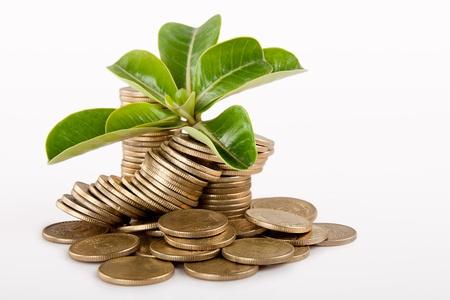
The public health crisis due to Covid-19 evolved much quicker and became bigger than thought earlier. Trade, travel, consumption and many economic activities, have been extremely curbed recently. The economic uncertainty in 2020 has increased leading to downgrades in GDP forecast, corporate earnings and increase in fiscal risk. At the same time, based on the development from January to March, the positive feeling is that this pandemic will be brought under control by lockdowns aimed at containing the outbreak and vaccine in the future. Given the impact of this pandemic, the world may change its investment strategy in the future. India is in a good position to outperform in the long-term due to strong macros, benefits from crude crash and low impact from Covid-19 currently.
Update on Covid-19
The feeling is that Covid-19 will be brought under control in the next two to three months. News updates from China suggest that the number of new cases reported has fallen dramatically in recent days. In mid March it was around +20 on a daily basis from around +2000 few weeks back. Lockdown, quarantine and travel restrictions have helped to reverse it. Especially developed countries and Iran were experiencing difficulty in controlling the spread of the virus. But the way Asian countries have managed gives a confidence that it will be brought under control with stricter public safety measures. If you have concerns regarding the numbers published by China, then consider South Korea, Singapore and others. It is also expected that in future we will develop a vaccine, currently about 20 molecules are under development and few may go for trial soon, still it will take months to years to develop.
A blessing for India and boon for the world…
The standoff between Saudi and Russia and the consequent crude crash became a fresh headwind for global economic growth. Saudi initiated price war against non-OPEC countries providing a discount of about 20% to Asian and European countries; they are also expected to increase production. This situation can change if both parties reach an agreement. But this cannot happen if their intention is to target new oil producers like US shale producers.
This is the highest downfall in prices since the Gulf war of 1991. The prices were already under pressure due to fall in demand since the breakout of Covid-19. The demand was firstly impacted in China which is the largest oil importer in the world, consuming 10mn barrels a day. Now Covid-19 has spread to more than 160 countries. Oil prices had corrected from 60$ to 50$; by 17th March it has further dipped to 30$.
In this fallout, the biggest loser is US with a hit to US Shale business. Today US is the largest producer of oil with about 1/5th share and is the 3rd largest exporter. The production cost of Shale companies is in the range of 40$ to 60$ depending on the type, technology and age of the plant. While a sharp fall in oil prices will have a ripple effect on OPEC and Non-OPEC countries, top 10 oil exporting countries (excluding US) accounts for more than 15% of the world economy.
Risk parameters during global crisis
Due to the above factors, global bond yield has swiftly fallen anticipating a big recession. US government’s 10 year bond yield has corrected to 0.80% as on 17th March from 1.60% a month ago. Fed had cut bank rate to zero as during global financial crisis and markets expect more actions to increase liquidity in banks. This is being followed by many developed and developing countries. Funds are shifting to safe haven investments like bonds, due to which bond prices are increasing and bond yields are moving towards zero. These levels are even below the trend seen during the global crisis of 2008-2009, which is a point of concern. We expect that this is also due to trading and investment being largely controlled by algorithm in international market, for hedge and ETF. A concern, which may develop in the future, is that such low interest rates will limit the headroom of monetary measures in the hands of the government and central banks to support the economy and reverse the downtrend.
What should investors do?
As long-term investors we should look at the positive side, since we believe these are short-term reactions. Today it is a seller’s market, which developed as market started this year on expectation of revival of economy. This expectation was not met due to corona crisis and now due to oil prices. Valuations are high in spite of low economic growth leading to rapid selling. YTD FIIs have sold more than Rs 50,000 crore of net-equity in India (16th March). Domestic and International volatility index is back to the level seen during 2008 global crisis. Ongoing correction may continue in the short-term if spread of Covid-19 is not contained and Saudi-Russia does not come to the negotiation table. But please do note that if these are the only two factors for the consolidation in equity market we could be assured of long-term gains, we should capitalize on this situation.
Be inactive in the short-term and watch the market…
This sell-off is panic initiated by global market due to a fear that spreading of Covid-19 is not under control and not enough measures have been initiated in rest of the world. Indian equity market will follow global market during such situations. Currently, we don’t know when this chaos will come to an end. Investors should be inactive in the direct market, no buying or selling, and assess the market situation with a wait and watch approach.
Strategy should be to accumulate quality stocks and continue with SIP…
For a long-term investor in equities, the allocation should be 30% in top private banks, top NBFCs and one PSUB. Next major investment of 25% should be on consumption, chemicals and pharma. Rest could be stock specific with focus on IT, companies with good management credentials, clean fundamentals, dividend history and healthy business outlook with leadership qualities. Spread your investment over time in stocks and sectors. Capitulation is not an opportunity to buy any type of stocks. Stick to quality stocks having leadership in sector, products or niche segment. Don’t sell; check fundamentals, chart and qualitative analysis before investing. Don’t be lured by low prices like new low, 52 week low or a bounce in price during such consolidating period.










